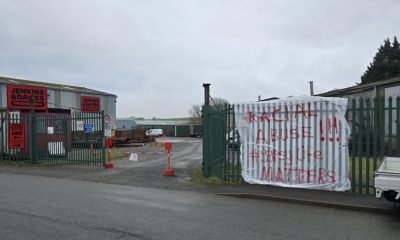Farming
Dairy report will inform farming policy
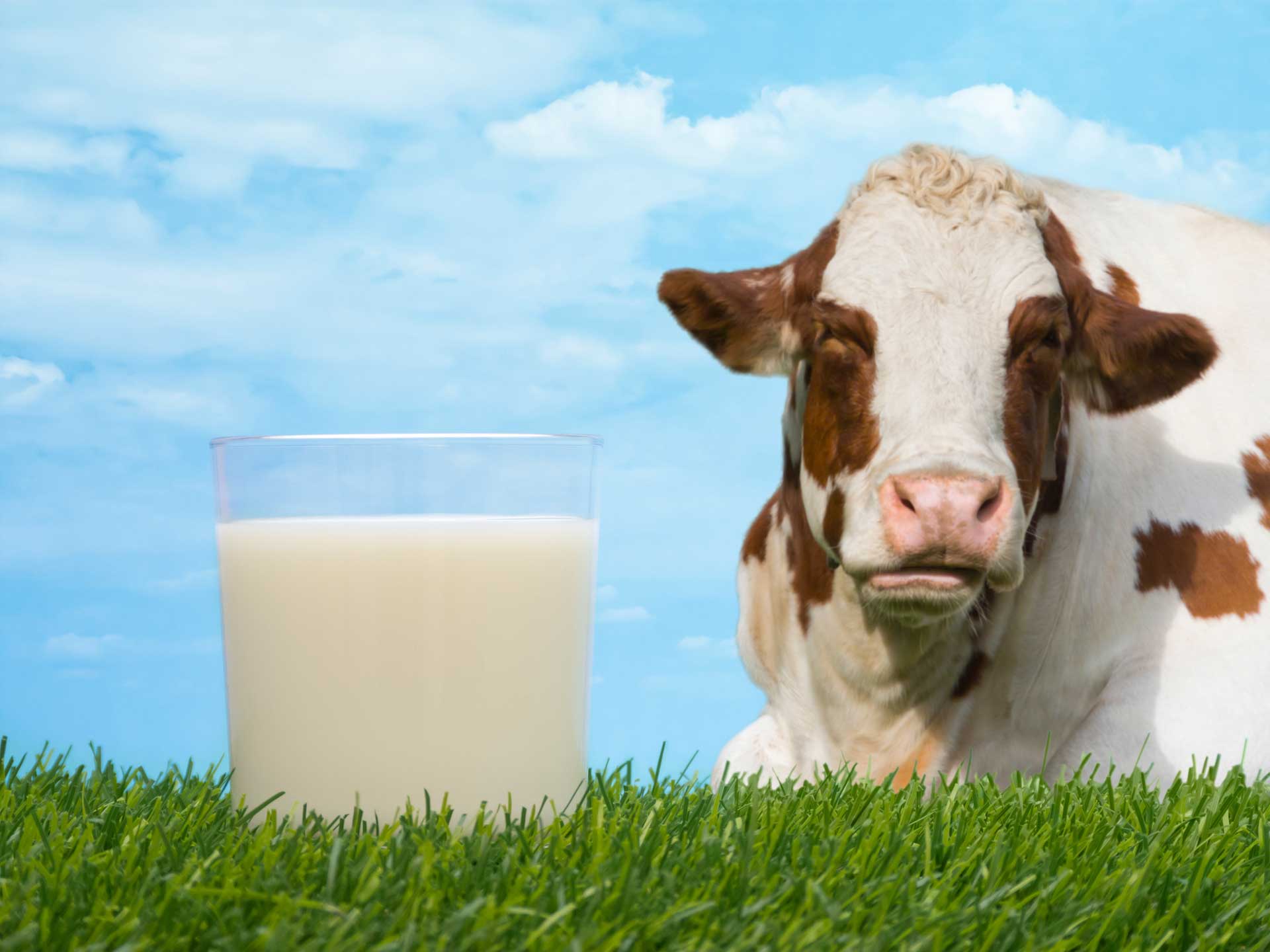
THE WELSH GOVERNMENT says that a new report into the Welsh dairy industry will help farmers improve the performance and resilience of their businesses and prepare for the future post Brexit.
In 2017, the Welsh Government provided £3.2 million of European conditional aid to Welsh dairy farmers through two schemes focusing on farm business benchmarking and herd milk recording.
An encouraging 75% of dairy farmers took up the opportunity – the highest level of uptake in the UK. Along with aid funding, farmers also received a bespoke report showing the strengths and weaknesses of their business with a comparison with other dairy farms.
KEY FINDINGS
Invaluable data produced from the benchmarking scheme was used to produce a providing a snapshot of Welsh dairy farm performance. Key findings include:
The importance of farmers constantly measuring the financial performance of their business to help them become more efficient;
the top performing farms demonstrate that profitable dairy farming is possible with excellent returns, even in difficult trading conditions;
some farms, have costs of production which are higher than the milk price has ever reached;
farmers should take advantage of the plentiful supply of grass and maximise the milk they produce from grass and forage;
farmers who have made a conscious choice about their production system tend to be more profitable; and
maintaining high standards of animal health and welfare reduced the financial impact of diseases and can give the industry a competitive advantage.
SUPPORT TO BE TAILORED
Support to help dairy farmers address the issues identified in the report is available through the Welsh Government’s Farming Connect programme and via the Agriculture and Horticulture Development Board (AHDB) Dairy.
Cabinet Secretary Lesley Griffiths said: “The approach we adopted to providing aid to our dairy farmers has provided us with useful data on the performance of the industry in Wales.
“The report published today will go a long way to help farmers improve the performance of their business by reducing their costs of production. This will improve the efficiency of our dairy farms, allowing them to become more resilient to business risks and milk price volatility.
“As a government, our priority is to work with everyone affected to prepare for a world outside the European Union and for a resilient agricultural sector. This report will provide invaluable information to help us decide how best to support the dairy sector to prepare for the future.
“While the report shows profitable dairy farming is possible, I am particularly concerned that some Welsh dairy farms have costs of production which are higher than the milk price has ever reached. That is why I am in the process of tailoring the support we offer these farms to help them re-evaluate the structure of their business and use their benchmarking report to see where improvements can be made.
“It is clear from the report that by becoming more efficient and focusing on producing milk at a lower cost of production, all farms can become more profitable, no matter what the milk price is.
“Brexit presents significant challenges to the agriculture industry but also opportunities. The industry, and individual farmers, must start to plan now for the future.
“The long term outlook for the dairy sector is good with global demand forecasted to increase year on year. Our dairy farmers need to be competitive and market focused to compete with the best in the world. If this happens then I firmly believe our dairy farmers have a bright future.
“I encourage all Welsh dairy farmers and the wider industry to use the available data to help them prepare for the post Brexit world; to help make their businesses both resilient and prosperous.”
NFU WELCOMES REPORT
NFU Cymru has welcomed the publication of report.
Gareth Richards NFU Cymru Milk Board Chairman and dairy farmer from Carmarthenshire said: “Milk production is a major contributor to the gross output of Welsh agriculture. This report shows the vulnerability and volatility of the sector but also highlights opportunities available to individual producers and to the sector as a whole in Wales.
“Through the production of individual reports for contributors this has enabled farming businesses to identify the strengths and weaknesses of their business by benchmarking against others.
“As the Cabinet Secretary, Lesley Griffiths, has said, tailored packages are now available for individual producers to move their business on and future proof them for the potential massive changes Brexit will bring. I would encourage all 1,700 milk producers in Wales to make use of services that AHDB Dairy and Farming Connect can offer both on an individual farm level and in participative group activity.”
NFU Cymru Deputy President Aled Jones said: “The data captured as part of this EU conditional aid scheme is invaluable not just for farmers to help them identify where to target performance improvements on farm, but also for policy makers to help design and implement policies that ensure we can achieve our vision of a productive, progressive and profitable industry in Wales.
“The opportunity to collect data that Welsh Government requires to meet climate change and environmental obligations is also invaluable and this project provides a baseline against which to measure future progress.
“As part of a comprehensive post-Brexit agriculture policy for Wales, NFU Cymru believes the incentivised collection of key performance data should be an integral part of a new policy based around our three cornerstones of productivity, environment and volatility measures. Collection of key data around production, farm structure, financial, environmental and Greenhouse gas emissions can help inform decision making at farm and national policy level. The data collected can also help underpin the credentials of ‘Brand Wales’, a concept based on providing Wales with a unique selling point to market the full range of goods and services provided by Welsh farming.
“We hope the success of this scheme can now be built upon and replicated not just for the dairy sector but also to all the key farming sectors in Wales.”
Farming
Natural Resources Wales urges farmers to follow safe slurry spreading rules

NRW is reminding farmers across Wales to take key steps to prevent pollution as the organic manure spreading season re-opens.
During the autumn and winter “closed periods”, restrictions were in place to stop slurry and other high-nitrogen manures being spread, helping reduce the risk of agricultural pollution.
Grassland spreading can resume from Thursday (Jan 16), with spreading on tillage land re-opening on Friday (Jan 31). However, NRW said a number of controls under the Control of Agricultural Pollution Regulations (CoAPR) will remain in force until the end of February.
Those restrictions include limits on application rates — no more than 30m³ of slurry per hectare, or eight tonnes of poultry manure, in a single application — with at least three weeks required between applications.
Before spreading organic manure, producers must also carry out field inspections to assess weather and soil conditions, slope, ground cover and proximity to watercourses, to help reduce the risk of runoff.
Farm businesses are expected to plan and record all applications in their Nitrogen Management Plan to ensure nutrients match soil and crop need and remain within nitrogen limits.
Spreading is prohibited on waterlogged, flooded, snow-covered or frozen ground — including soil that has been frozen for more than 12 hours in the previous 24 hours.
NRW said its teams will continue to support farmers while monitoring compliance.
Simon Griffiths, team leader of NRW’s Agricultural Pollution Inspection Team, said: “As the closed periods come to an end, we want to remind farmers, tenants, landlords and contractors of the restrictions which remain in place until the end of February.
“This means anyone considering spreading organic manure needs to ensure the conditions are suitable before work starts.
“NRW is committed to protecting the environment and any instances of pollution will be investigated and appropriate enforcement action taken.”
NRW is urging farmers and members of the public to report pollution incidents immediately via its online “report it” form or by calling 0300 065 3000.
Business
Redevelopment scheme at Castle Villa farm to be considered
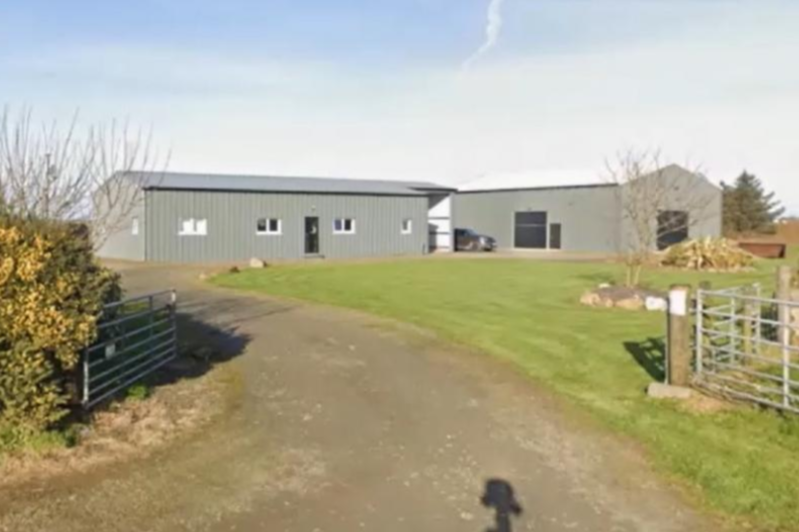
A PREVIOUSLY refused call for the relocation of a Pembrokeshire farm diversification scheme which packages and distributes specialist medical equipment across Europe will be decided by full council after being backed a second time by councillors.
In an application recommended for refusal at the January meeting of Pembrokeshire County council’s planning committee, Mr Van Der Spoel sought permission for the relocation and expansion of an existing farm diversification business into an existing agricultural building at Castle Villa, Hayscastle.
It had previously been recommended for refusal at the December meeting, but members went against the officer recommendation with a ‘minded to’ approval, meaning it returned to the January meeting after a ‘cooling off’ period.
Back in July a similar application by Mr Van Der Spoel, through agent Harries Planning Design Management, was refused by planning officers.
A supporting statement for that application said the Dutch-born applicant, together with his wife and adult daughter ran the farm diversification business packing specialist medical insulated insulin supplies at their 135-acre sheep farm.
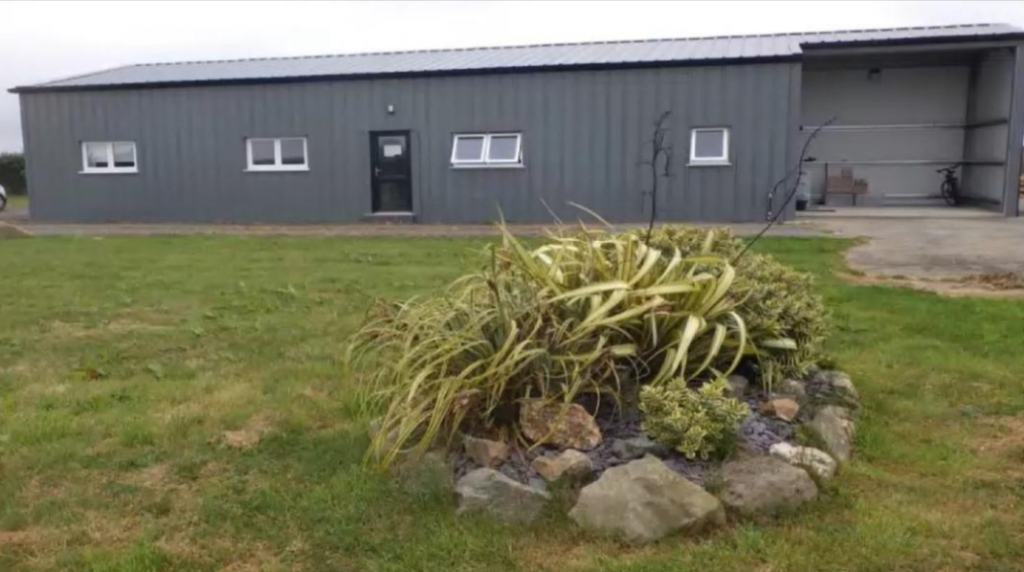
It added: “The business run from this site is FRIO ASTRID EURO Ltd, which has a franchise agreement with FRIO UK. This business has been run from Castle Villa since its incorporation in 1998. The business was initially run from the stable building on the farmyard at Castle Villa.
“The business set-up involves receiving stock from FRIO UK in Wolfscastle, packaging orders and distributing the stock to seven Western Europe countries.”
Wolfscastle-based FRIO produces the world’s first patented insulin cooling wallet which keeps insulin and other temperature-sensitive medicines cool and safe.
The scheme for the business, said to have outgrown its current site, was refused by county planners on grounds including a lack of “robust evidence” to prove it couldn’t be sited within a nearby settlement or an allocated employment site, such as Haverfordwest.
The latest application is recommended for refusal on similar grounds.
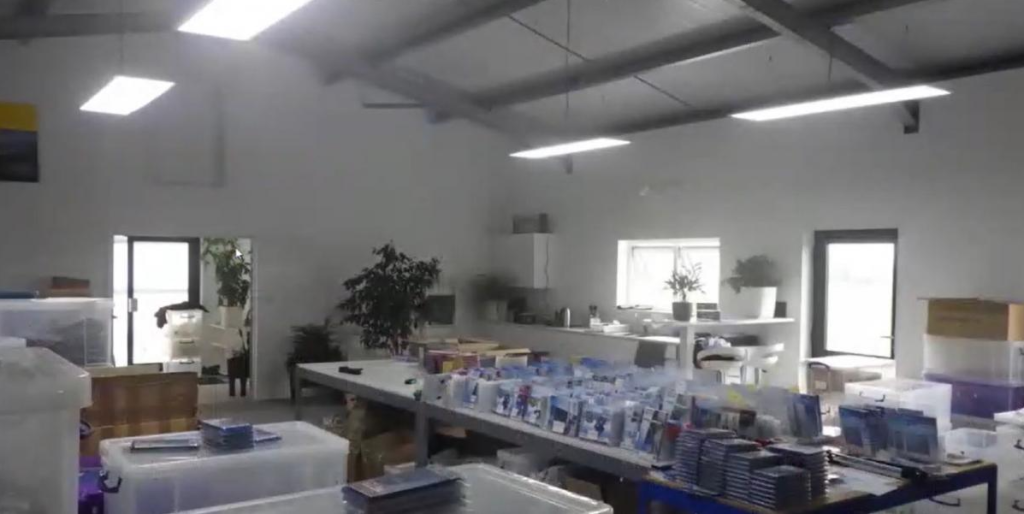
At the December meeting, members heard from agent Wyn Harries his client’s business, selling into Holland, Belgium, Switzerland, and Germany, accounted for some 20 per cent of FRIO UK’s trade on its own.
Mr Harries spoke again at the January meeting, saying previous articles in the Western Telegraph had shown a great deal of public support for the scheme, which had no local objections, adding of the previous ‘minded to’ approval: “Comments on the Western Telegraph [story] show the general populace would be like-minded with the councillors.”
Cllr Mark Carter said: “The only comments [locally] are why aren’t they allowed to continue? It’s almost an ideal business, they are there, it’s tidy, they are getting on with it, there’s never a complaint, it is very hard to see the business that is going on there; I’m absolutely fully supportive of this family.”
Officers had, if members were again supportive of the scheme, proposed a Section 106 legal agreement condition for approval, to ensure the FRIO ASTRID storage and distribution use remains in the same ownership and control as the existing farm business.
A call by Cllr John T Davies to again go against the officer recommendation of refusal was made, supported by 11 members, with one voting for refusal.
The application will now go before a future full council meeting for a final decision, expected to be the March meeting.
Business
Cresswell Quay potato farm allowed to keep holiday let

A CALL to allow a 600-acre Pembrokeshire potato farm to keep a holiday let erected “in innocence” without permission, which is said to be essential for supporting the business, has been approved.
In an application recommended for approval at the January 13 meeting of Pembrokeshire County council’s planning committee, Mr and Mrs I and F Elliot sought permission for the continued use of a mobile unit with a veranda as tourist accommodation at Cresswell Barn Farm, Cresswell Quay.
Cresswell Barn Farm supplies potatoes to Welsh supermarkets and the site has a certified campsite.
The application was before the committee rather than being delegated for an officer decision as it was recommended for approval, subject to the completion of a Section 106 legal agreement essentially keeping it for holiday use only, despite being in conflict with the development plan and was made by a close family member of an officer in the planning service.

An officer report accompanying the application said an enforcement investigation was started way back in 2012 following a claim a caravan was located at the site and was being used for residential purposes.
That was closed in 2023; a 2022 investigation taking place after an allegation a structure on-site was being used for holiday letting.
A 2023 certificate of lawfulness application was made to regularise the breach of planning, saying the unit had been used for residential purposes for more than a decade, but insufficient information was provided to allow it, the report said.
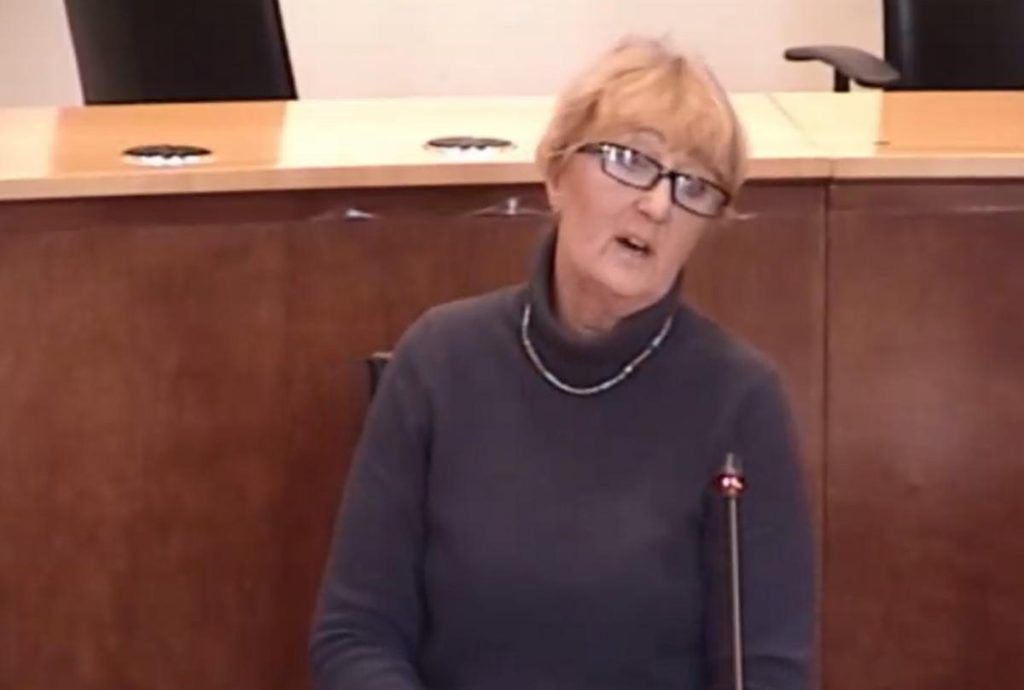
An appeal against this was later made to Planning and Environment Decisions Wales (PEDW) but was withdrawn by the applicant.
It said the enforcement action was ongoing, leading to the formal planning application.
Of the site itself, the report said: “The agent has confirmed that due to many variables, there is no typical year for the enterprise in terms of profitability and that the income generated from tourist related activities at the farm, is critical to the farming enterprise. The high-quality holiday unit therefore provides an additional income stream for the farming enterprise.”
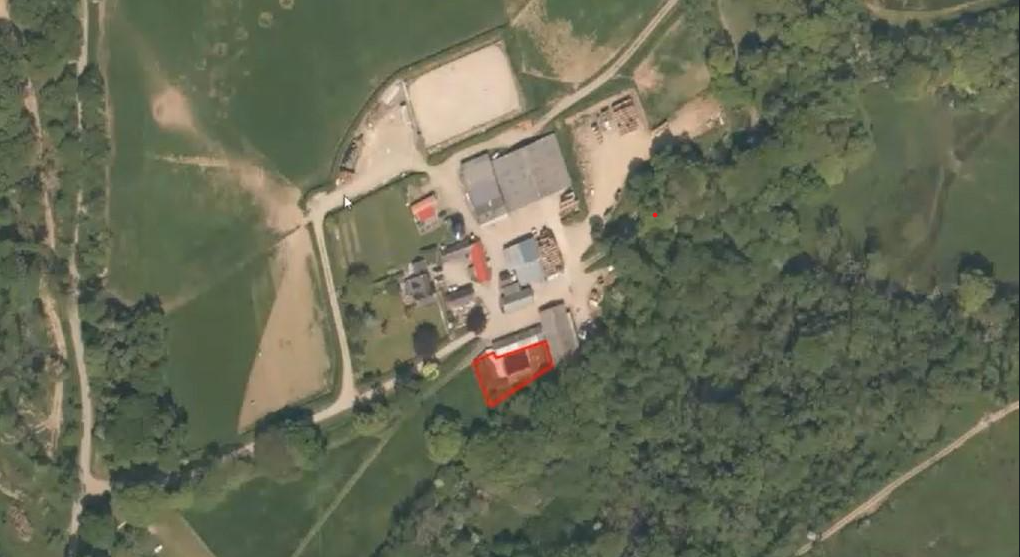
It added: “The holiday unit is located adjacent to buildings that make up the farm complex, with the accommodation offering guests an immersive rural experience that introduces them to aspects of the rural economy.
“Information submitted in support of this application confirms that the income from the holiday uses at the site is critical to supplementing the potato farming enterprise.”
Speaking at the meeting, Fiona Elliot said the holiday let was a small-scale part of the wider farm complex; the building having been on-site for some 15 years, the applicants more recently “in innocence” using it as a holiday let, which visitors have described as “five-star,” not realising they needed planning permission.
Following a call by Cllr Brian Hall to back the officer recommendation of conditional approval, members unanimously supported that.
-

 Crime6 days ago
Crime6 days agoMilford Haven man tells jury he feared being run over outside pub
-

 Crime7 days ago
Crime7 days agoMan jailed after samurai sword brandished in Pembroke Dock street brawl
-

 Crime6 days ago
Crime6 days agoDock woman sentenced after assault on neighbour during ‘psychotic episode’
-

 Crime6 days ago
Crime6 days agoMilford Haven man denies sexual assault charge
-

 Crime6 days ago
Crime6 days agoOn-duty paramedic racially abused at Withybush General Hospital
-

 Crime7 days ago
Crime7 days agoJudge blasts ‘hearsay’ evidence in Niall Taylor driving appeal case
-

 Local Government5 days ago
Local Government5 days agoDramatic start to Neyland code hearing as town clerk gives evidence
-

 Business6 days ago
Business6 days agoMilford Haven’s offshore future in focus as floating wind project wins backing






























